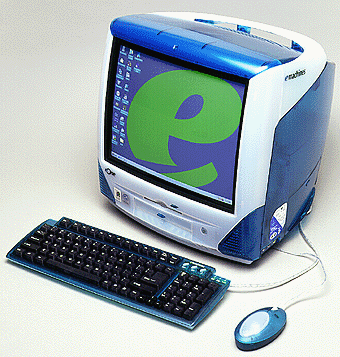PNNL quantum algorithm theorist and developer Nathan Wiebe is applying tips from data science and gaming hacks to quantum computing
Anyone operating on quantum pcs is aware of the devices are error inclined. The basic unit of quantum programming – the quantum gate – fails about the moment every single hundred operations. And that error fee is too high.
Even though components builders and programming analysts are fretting in excess of failure costs, PNNL’s Nathan Wiebe is forging ahead crafting code that he is self-confident will run on quantum pcs when they are prepared. In his joint appointment purpose as a professor of physics at the College of Washington, Wiebe is education the subsequent technology of quantum computing theorists and programmers.

The Quantum Gate Hack
Timothy Holland, Pacific Northwest Nationwide Laboratory
On one hand, Wiebe laments that “there’s these types of a huge gulf among wherever we are right now vs . wherever we need to have to be.”
But just as promptly, he brushes aside question and describes that “we are now at the issue wherever we are executing points that are genuinely fascinating.”
It’s this forge-ahead mentality that has put him as a international chief in quantum algorithm development with a dozen unique intercontinental partnerships and 91 publications on quantum algorithms released in the previous 5 years by itself.
Gaming policies implement to quantum gates

Minecraft
Coding for quantum pcs involves leaps of imagination that can be complicated on one level, but Wiebe factors out that any 15-year-old Minecraft fanatic would have no problems knowledge the basic principles of how it performs. The wildly well known building block video clip match has spawned a neighborhood of enthusiastic coders who create virtual pcs inside of the match ecosystem. Minecraft coders have simulated genuine-earth physics and developed virtual calculators, among the other feats. The Minecraft universe has its individual inner policies and some of them really do not really make sense – substantially like some of the policies of the quantum universe really do not seem very clear, even to physicists.
Regardless of not understanding why the policies in Minecraft function the way they do, players as an alternative learn how the physics of Minecraft function and additional how to exploit that know-how to accomplish responsibilities the online games creators may well not have intended. Quantum pc programmers have a equivalent challenge. They are faced with the unusual policies of quantum mechanics and try out to come across imaginative ways to “hack” them to create pcs that, in some circumstances, can clear up challenges trillions of situations a lot quicker than everyday pcs by employing quantum effects like interference and entanglement that everyday pcs lack.
“On a quantum pc, when you try out to measure the quantum bits, they revert to everyday bits. In the process, they lose the pretty capabilities that give quantum computing its electrical power,” Wiebe said. “With a quantum pc you have to be far more refined than you do with everyday pcs. You have to coax out information about the method without having harmful the information that was encoded in there.”
“We located these weird policies of quantum mechanics,” he said. “But only now are we inquiring how we can exploit these policies in purchase to permit us to compute.”
It’s like steam engines

Watt steam motor By Nicolás Pérez, CC BY-SA three.
Wiebe likes to use the analogy of James Watt, inventor of the initial present day steam motor. In the late 1700s, the limits to electrical power that could be extracted from a steam motor weren’t comprehended. Only later did the French physicist Sadi Carnot discover that there were immutable physical guidelines that constrained warmth motor performance. This observation became identified as the next legislation of thermodynamics and is now found as a cornerstone of science. Just as the study of the performance of warmth engines unveiled the next legislation of thermodynamics, the study of quantum computing has the potential to expose a further knowledge of the limits that physics spots on our means to compute, as perfectly as the new opportunities it offers to collaborate among the fields.
Quantum computing is not only physics, Wiebe said. It exists in the intersection among numerous fields, including physics, computer science, mathematics, materials science, and ever more, data science. In truth, he sees a huge untapped purpose for data science and device learning in quantum computing.
“Like Watt and Carnot, we really do not automatically need to have to capture all of the minutia that is happening inside of the method,” Wiebe said. “All we have to be able to do is predict enter and output. So data science and device studying equipment could have a large amount of influence in building quantum pcs function in useful conditions.”
Diamonds in the rough

A single of the initial useful quantum systems is possible to be quantum sensors – devices that use quantum signals to measure points like temperature and magnetic fields. Wiebe labored with an intercontinental team of colleagues to apply device studying techniques to a tricky dilemma in quantum sensing.
Biologists want to use these sensors to measure what is likely on inside of unique cells. The sensors are designed of diamonds with specific flaws that can be applied to send quantum signals. The dilemma is that, at home temperature, the quantum sensor signals include too numerous errors to be useful. The investigation team could not get the experiments to function except if the entire point was cooled to liquid helium temperatures (−452.2°F), which of course isn’t good for residing cells.
Wiebe and his colleagues solved the dilemma by operating the experiments at home temperature and then applying an algorithm that applied techniques from data analytics and device studying to right for the error-inclined, noisy sign.
“We bought similar sensitivity as the pretty chilly cryogenic experiment at no further charge,” he said.
Wiebe said that applying the similar principles may well be just the point wanted to right for noisy, error-inclined quantum gates. The problem he asks is: “How substantially quantum error correction do I need to have to warranty that my algorithms are likely to run?”
Wiebe is adamant that building quantum computing useful will have to have the mixed interdisciplinary attempts of scientists in numerous fields studying to communicate every other’s languages.
“If we can create a quantum pc, then we have the means to clear up currently intractable challenges in chemistry and products science and physics,” he said. “The challenge each imposes limitations and offers new opportunities. Quantum computing forces us to get a further knowledge of what it suggests to compute.”
Resource: PNNL




